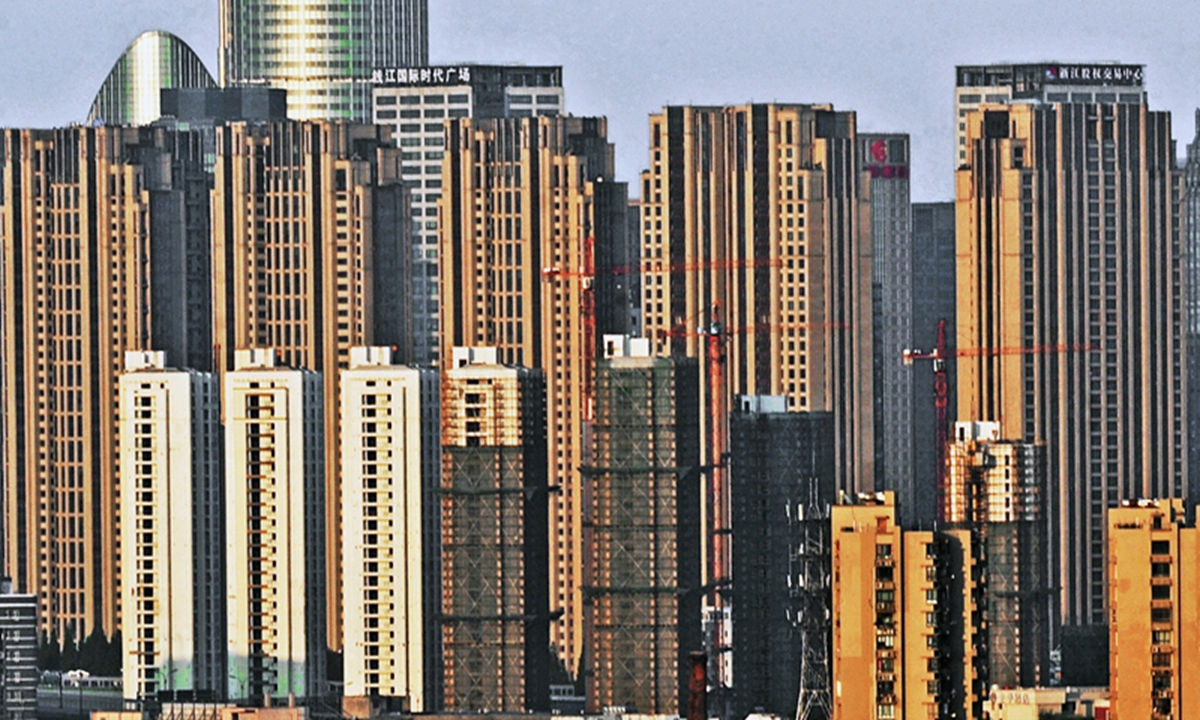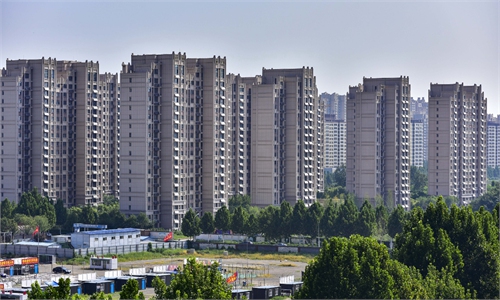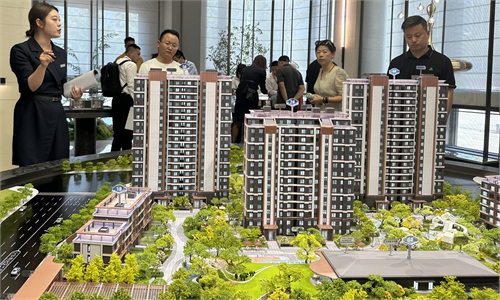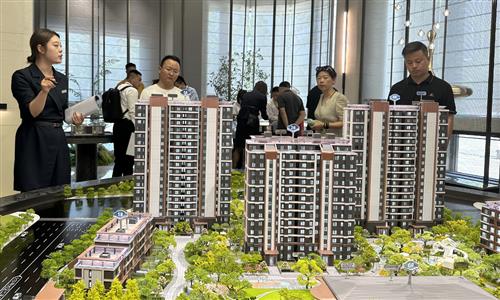
real estate Photo:Xinhua
Major Chinese cities including Nanjing, Qingdao, Shenyang, Jinan, Lanzhou, Dongguan and Dalian have lately decided to eliminate administrative curbs on home buying, indicating the government's stepped-up push to resolve the problems faced by the country's massive real estate sector that has weighed on the economy since 2021.Other municipalities are most likely to follow these cities in relaxing their restrictions on real estate, as Suzhou, a megacity of more than 11 million in Jiangsu Province, said that home buyers are now free to purchase apartments of 120 square meters or more. And the southern Guangzhou city, with 16 million residents, has abandoned a controversial seven-year policy restricting new home selling prices.
These cities' scrapping previously strict curbs on home purchase sends a clear signal that the policymakers intend to open the door wider for property policy easing, in tandem with the central government's economic growth-reinforcing package, in an attempt to stimulate home buying and fundamentally improve market expectations.
Economists have said that a nationwide property market slump will dampen the public's confidence and restrain people's appetite for shopping big-ticket items like cars, because the average households feel their net worth associated with their properties is being cut. The month-by-month housing price falls, seen in many Chinese cities, should come to an end soon. To support home sales, the highly restrictive policy to discourage property investment should be loosened promptly.
Until the prices of new and old homes in major Chinese cities reverse course and start to climb up, Chinese urbanities will not feel their prosperous life is coming back, which drive them to shop more and ramp up domestic consumption.
The optimization of government policies on real estate is warranted to stimulate one of the most significant segments of the economy. Wary of the 2008 subprime-induced financial system crisis reappearing in China, the policymakers took the initiative in 2017 to tighten the bank loans going to debts-fuelled developers. As a result, the market exuberance for mass home buying or property hoarding was watered down.
By all metrics, the financial policy tightening targeting the real estate sector was needed then to stop overheated property speculation as housing bubbles were never healthy for the economy. Nevertheless, the cut-off of bank loans dealt a heavy blow on real estate developers, which indirectly impacted market enthusiasm.
For an example, during the first seven months of 2023, new home sales in the country fell 4.7 percent from a year earlier. The huge property industry has been long an important engine of economic growth, accounting for as much as 30 per cent of the country's GDP, and investors see the revival of the sector as crucial to the recovery of the world's second largest economy. However, the default of major developers like Evergrande Group has dented investor confidence in the sector.
In recent weeks, China's central government has rolled out a series of measures, including easing borrowing rules and costs by cutting the benchmark interest rates on loans. As a result, the so-called tier-one metropolises like Beijing, Shanghai, Guangzhou and Shenzhen have witnessed a marked increase in home sales. For instance, new home sales in Beijing and Shanghai jumped last week, keeping property showrooms open late into the night to meet customer demand, in a clear sign that government efforts to revive the sector are starting to yield results.
All these positive changes in the industry follows a policy pivot by the CPC Central Committee's Politburo meeting in late July to adjust and optimize the country's property policies in a timely manner to engineer a gradual but steady recovery of the property sector through 2025. The industry encountered a wave of downward pressure since 2021 when the authorities took steps to stop developers from accumulating too high debts.
Earlier, Ni Hong, Minister of Housing and Urban-rural Development, said in a meeting with representatives of Chinese developers that more easing measures for the property sector would be implemented, such as reducing mortgage rates and cutting down-payment ratios. Housing authorities in all leading cities have pledged support for the housing market, reflecting the leadership's intent to further ease property control measures, which sent shares of the developers surging in the past two weeks.
In the past two months, the central and local governments have worked out a wide range of adjustments to optimize their real estate policies, by lowering mortgage requirements for home buyers while reducing interest rates on existing first-home mortgage loans. The measures are aimed at revitalizing property transacting activity and accelerating housing sector's fast recovery, in addition to boosting market confidence. The overall effect of these measures is to be gauged.
The tier-one and tier-two metro-cities are asked to "satisfy the rigid demand and improvement demand for housing" and facilitate a stabilized and healthy development of their respective property markets. The latest streams of incremental positive news flow are meaningful and also capable to give a shot to the real estate sector, while boost Chinese developers' share prices. Next year China's real estate market is likely to witness a conspicuous improvement, marked with considerably higher home sales and reviving property prices.
The author is an editor with the Global Times. bizopinion@globaltimes.com.cn



